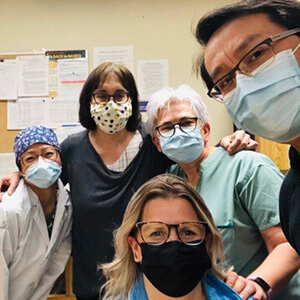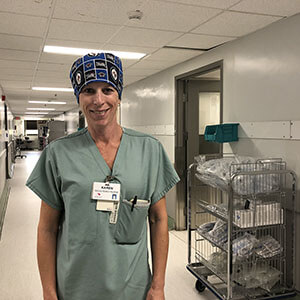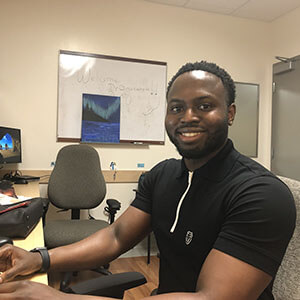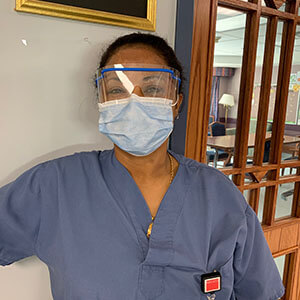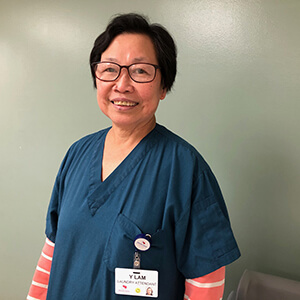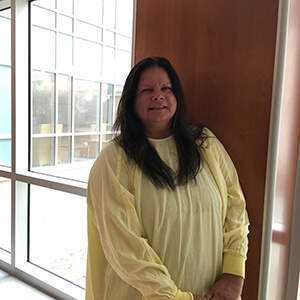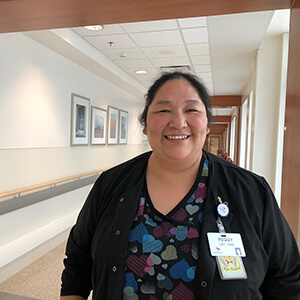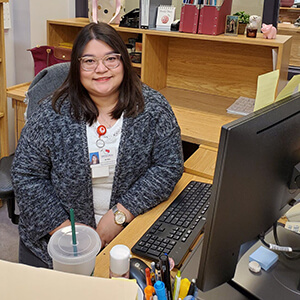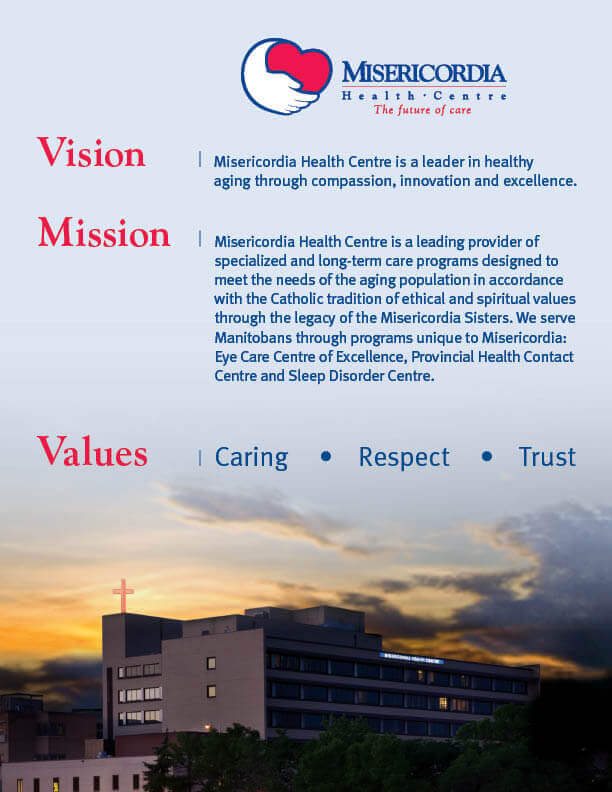From the operating room to client care: helping halt the spread of COVID-19 and protecting those who are most vulnerable
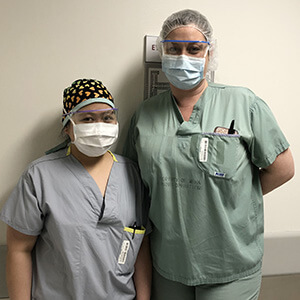
During the first wave of the pandemic, members of the operating room (OR) team were reassigned to other program areas at Misericordia, including Colleen Kunderman, registered nurse (RN), who spent two months answering calls on the Health Links – Info Santé COVID-19 line.
“During the second wave, I assumed I might be redeployed to another site,” said Colleen over the phone after working the night shift on Cornish 6, a transitional care unit at MHC. “It was nice to stay on-site at MHC – it’s familiar.”
Yvonne Mendoza, RN, is an OR team member who in mid-November, like Colleen, was reassigned to transitional care.
“At first I was scared. I thought the change would be overwhelming,” said Yvonne candidly. She continued: “But I remembered that I would bloom where I was planted, because I was there for a reason.”
Colleen and Yvonne both spent some time over at Misericordia Place, but primarily worked on Cornish 6 (C6) and Cornish 5 (C5) transitional care units, respectively, for the past two months.
With their reassignment came big changes both professionally and personally. Both RNs were accustomed to working eight-hour shifts, Monday to Friday, as well as being on call, and had to adjust to working 12-hour shifts, days, evenings as well as sometimes working seven days on. However, the biggest changes came with the new roles themselves.
“In the OR, my interactions with patients were limited to usually five minutes or less. On C6, it’s continual patient care, so my duties included: assessment and taking vitals, administering meds, assisting with feeding and transfers, helping clients FaceTime their families, really everything but admin,” said Colleen.
Yvonne, who was reassigned to entrance screening during the first wave of the pandemic, expressed that in moving from the OR to C5, the systems and processes are different, incomparable.
“At the end of the day, it was very satisfying working on C5. I learned so many new things with the help of the C5 team – they’re amazing and very supportive,” said Yvonne.
With visitation restrictions in place in order to protect clients and help halt the spread of COVID-19, health-care providers are important sources of support and meaningful interaction for clients and residents.
“We all have had our difficult moments during COVID. But nothing compares to the experience that some clients have had. They’ve lost spouses and couldn’t attend funerals. They haven’t seen family members in person for months on end. Throughout my experience on C6, it made me see that there was a real need and purpose for me – and my colleagues – in being reassigned.”
Colleen and Yvonne have now returned to their usual roles in the OR. To both of these health-care heroes and their colleagues, thank you for helping where needed most at MHC.
From the MHC Family to all reassigned and redeployed MHC staff: we are grateful for your dedication and service to clients, residents and patients. Thank you for living our Mission.
Keep COVID-19 informed by visiting: covid19manitoba.ca
#mhcfamily #healthcareheroesMB #covid19MB

